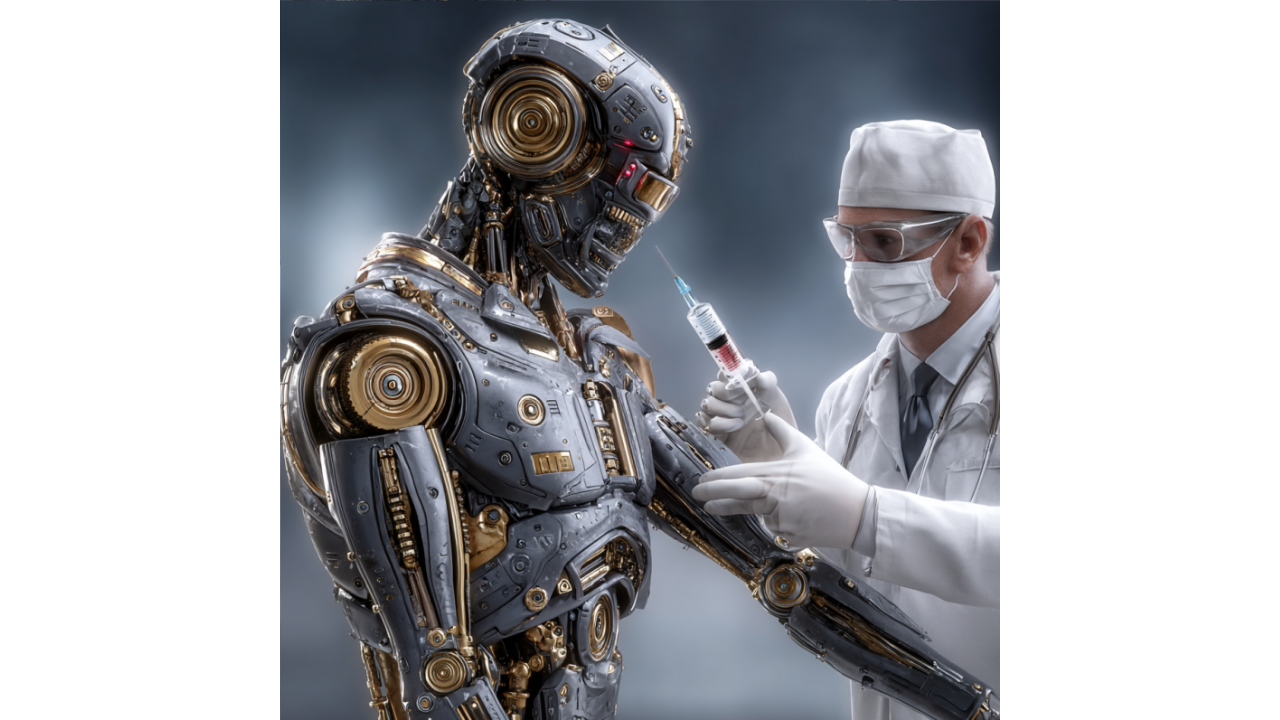Anthropic Built an AI to Interview 1,250 People About AI: Here's What We Learned
Anthropic just released research from a tool called Anthropic Interviewer—an AI system that conducted 1,250 interviews with professionals about how...

If you want to watch a generation of developers experience existential crisis in real-time, cut off their AI assistant for thirty minutes. Tuesday's Claude outage wasn't just a technical hiccup—it was anthropological theater.
When Anthropic's Claude flatlined at 12:28 PM Eastern, taking the API, console, and Claude Code with it, the internet witnessed something remarkable: highly paid software engineers discovering they'd forgotten how to think. The collective wailing was immediate and magnificent.
The reactions on Hacker News read like a support group for digital addiction. "Nooooo I'm going to have to use my brain again and write 100% of my code like a caveman from December 2024," mourned one developer, apparently forgetting that humans successfully programmed computers for roughly sixty years before Claude existed.
Another lamented the return to "blindly copy and paste from Stack Overflow"—as if this wasn't exactly what developers did before AI, just with extra steps. The speed with which panic set in was breathtaking. Thirty minutes. That's how long it took for the software engineering community to start "twiddling its thumbs," according to multiple reports.
The geographic patterns were particularly telling. UK developers noticed that "early morning here in the UK everything is fine, as soon as most of the US is up and at it, then it slowly turns to treacle." American developers, it seems, have become Claude's most dependent users—the equivalent of tech industry's caffeine addiction, but for thinking.
Here's what makes this delicious: we're witnessing the emergence of a new class of programmer—the AI-assisted coder who's more assistant than coder. Recent Stanford research shows developers are indeed more productive with AI, but Tuesday's meltdown revealed the dark side of that equation.
When your productivity multiplier becomes your cognitive crutch, thirty minutes of downtime transforms into professional paralysis. The comment threads revealed developers who genuinely didn't know how to proceed without their AI co-pilot. This isn't efficiency—it's outsourced thinking.
The marketing implications are staggering. If software engineers—supposedly the most technical professionals in the economy—can't function without AI for half an hour, what does this say about broader AI adoption curves? We're not just seeing tool dependency; we're witnessing cognitive rewiring in real-time.
Tuesday's outage also exposed the fragility beneath Silicon Valley's AI-first rhetoric. Anthropic's status page showed the company has experienced multiple incidents throughout September, including degraded output quality bugs affecting Claude Sonnet 4 and Haiku 3.5 models from late August through early September.
This follows a pattern. StatusGator data shows Anthropic has logged warnings and outages on September 1st, 3rd, 4th, 5th, 9th, 10th, and 11th. For a service that developers have made mission-critical to their daily workflow, this reliability record is concerning.
The Electronic Frontier Foundation has consistently warned about over-reliance on centralized AI services, but Tuesday's reaction suggests those warnings fell on deaf ears. When your entire development workflow depends on a single vendor's uptime, you've essentially made Anthropic a single point of failure for your career.
What's fascinating is the speed of this transformation. Developers who learned to code pre-AI are adapting their workflows around AI assistance. But there's an emerging cohort who learned to code with AI from day one. Tuesday's outage was a preview of what happens when that generation faces their first sustained AI winter.
The "December 2024 caveman" comment wasn't just hyperbole—it reflected a genuine temporal displacement. In the developer's mental timeline, coding without AI isn't just harder; it's literally prehistoric. We've compressed the learning curve so aggressively that basic programming skills now feel ancient.
This has profound implications for marketing teams building technical products. If your developers can't debug without AI assistance, how do you ensure product quality? If your content creators panic when ChatGPT goes down, how do you maintain editorial standards? Tuesday was a stress test for AI-dependent workflows, and many failed spectacularly.
Here's the uncomfortable truth Tuesday revealed: we've created a generation of professionals who've traded fundamental skills for enhanced productivity. The trade-off worked brilliantly—until it didn't.
The real test isn't whether AI makes us more productive. It's whether we can maintain basic professional competence when AI isn't available. Tuesday's thirty-minute window suggests many of us can't.
For marketing leaders, this is both warning and opportunity. The warning: don't let AI dependency replace core strategic thinking. The opportunity: while competitors panic during AI outages, maintain the ability to create, strategize, and execute without digital assistance.
The developers joking about "coding like cavemen" weren't wrong—they just had the timeline backwards. In thirty minutes, they'd reverted to skills that were cutting-edge just eighteen months ago. The real question is what happens when the next outage lasts thirty hours instead of thirty minutes.
We used to say the internet made us smarter by providing access to information. Now we're discovering AI might make us dumber by removing the need to think. Tuesday's Claude crash was just the beginning of that reckoning.
Ready to build AI-enhanced workflows that don't collapse during outages? Winsome Marketing's growth experts help you harness AI's power while maintaining strategic independence. Let us show you how to be productive with AI—and resilient without it.

Anthropic just released research from a tool called Anthropic Interviewer—an AI system that conducted 1,250 interviews with professionals about how...

Anthropic just released Claude Sonnet 4.5, and the performance numbers tell a story about what happens when you optimize relentlessly for one thing:...

Here's a wild thought: while everyone's racing to build the fastest AI, Anthropic built the safest one—and somehow ended up winning the actual money...